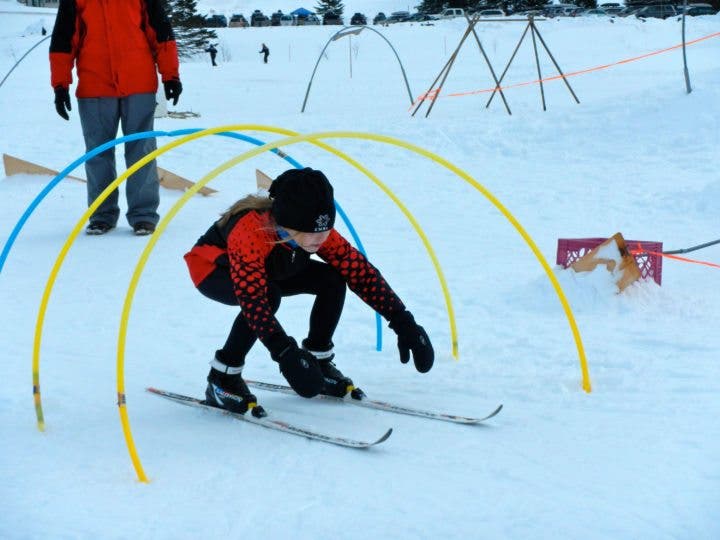The concept of ability refers to the skill or dexterity to carry out some tasks. Skill does not imply brilliance or mastery, but precision in the execution of a motor ability.
Skill is necessary to advance to the development of more skills and ultimately, in the performance of the sport level, not being an exception in cross-country skiing.
Find out why developing cross-country skiing skills is important and how to do it effectively.
Why is cross-country skiing skill training important?
In order to advance in elite sport, the athlete will have to master many components necessary to do so.
The list of skills is not exhaustive, so mastery of all skills does not guarantee that an athlete will reach the world-class level. Similarly, lack of skill in a particular area does not imply that he did not reach the high level. However, the lack of prior skills (in the development of young athletes) will limit the basis for movement to higher levels of performance.
The sequence of skill progression has to be designed to accommodate the normal and progressive developmental process with chronological and physiological age. Ideally, athletes should master the skills of their level and reach the necessary level of development to move to the next level.

Should different skills be taught based on age groups?
The truth is that there is a big problem when it comes to determining the appropriate age to teach different skills in cross-country skiing. When choosing or determining groups by chronological age, it is easy for there to be large differences between athletes of the same age. That is why the coach and the institution have this point since it is a predisposing factor for possible failures in young skiers .
The ability of the human body to perform the skill is related to age, but the relationship between chronological and biological age is approximate. Therefore, the age groups that are determined in the training clubs, would have to be approximate, and you have to be flexible and in some cases vary one or two years in any direction to achieve a homogeneous group performance.
It is also important for the athlete to gain complete mastery of the skills at each level before the athlete progresses to other specific skills at higher levels.

Mastery of cross-country skiing skills
General areas in which cross-country skiing skills should be developed are:
- Ski technique.
- Physiological preparation.
- Psychological and social behaviors.
- Training and competition behaviors.
- Knowledge of the material
- Sport Education.
The mastery of these skills must be chosen and assigned in a particular grouping. Each of the skill domains should be selected because it is indispensable in a cross-country skier preparation program .
Skills for cross-country ski athletes to master
1. Technical skills
Mastery of technical skills encompasses all aspects of the specific demands of cross-country skiing. Ski skills are included, ranging from correct posture to good balance in both techniques.
2. Physical abilities
The physiological and psychological domain of physical abilities derives from the fact that the corn of the performance of this sport is based on the foundation of physical condition, strength, power and endurance.
Athletic development begins with a solid foundation of learning general motor skills and should continue through mastery of the specific needs of each sport.
Inadequate levels of physical preparation severely limit the development of the skills necessary for high performance performance. A progression of steps constitutes an indispensable recipe for the adequate acquisition of the necessary physical capacities.

3. Psychological and sociological skills
Mastery of psychological and sociological skills reflects the reality that development is a social process. Athletes develop in the context of relationships, especially with family, peers / athletes, and fellow students. High-level performance at all ages is deeply mental.
These skills can be learned, many at a young age. The psychological domain becomes more important as the level of performance increases.
4. Training and competition skills
Skill development should be included in the overall sports program in a planned manner, with training goals and loads added or removed at specific points throughout the continuous time. The acquisition of these skills validates the training program.
5. Selection of suitable equipment
Mastery of the material reflects the fact that cross-country skiing is highly dependent on using the right tools. Selection, use and maintenance of skis, boots, bindings, waxes, clothing, poles, is essential for success in this sport.
6. Sports education
The domain of education serves to underline the fact that sport-specific knowledge is key in the long-term development of athletes. The ultimate goal of this education is to provide the athlete with a complete set of skills and knowledge, such that the athlete can eventually collaborate with the coach in developing their preparation.
References
- Bloom, BS (1985). Developing talent in young people. NY: Ballantine Books.
- Gallahue, DL (1993). Development of physical education for today ‘s children. (2nd ed.). Dubuque, IA: Brown and Benchmark.
- Harman, EA, Rosenstein, MT, Frykman, PN, Rosenstein, RM, & Kraemer, WJ (1991). Estimation of human power output form vertical jump. Journal of Applied Sports Science Research. 5 (3), 116-120.
